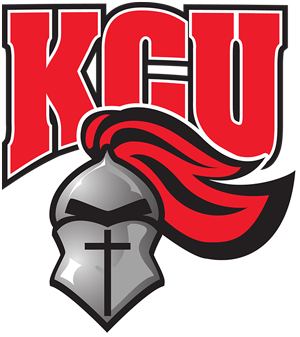Start Your Journey to a Psychology Degree at KCU
Are you interested in becoming a licensed professional but unsure where to begin? At Kentucky Christian University (KCU), we understand that the path to licensure can be complex. Here’s what you need to consider as you start your journey:
1. Choose Your License Type
Many professions require a license in order to practice. Common licenses include:
- Professional Counseling
- Marriage & Family Therapy
- Clinical Psychology
- And more
2. Understand Your State’s Requirements
Licensing rules and regulations vary by state. Research your state’s specific requirements to ensure you’re on the right track.
3. Know the Educational Requirements
Most licensure paths require a minimum of a master’s degree. Some states may offer lower-level licenses with a limited scope of practice, but a doctoral degree is often necessary to become a psychological practitioner. Additionally, consider whether program accreditation is important for your goals.
4. Plan Your Education Level
Are you looking to pursue a bachelor’s, master’s, or doctoral degree? KCU can help you determine the best educational path for your career.
About the Counseling Psychology Program at KCU
Curious about the curriculum? Our Counseling Psychology program is designed to prepare students for advanced studies in counseling, marriage and family therapy, and clinical psychology. These programs can be highly competitive, often more so than many medical school programs.
Courses at KCU cover essential topics such as screening, assessment, interventions, and professional ethics. Our curriculum is also uniquely integrated with biblical principles, equipping you to merge your faith with your professional practice.
How Are Classes Taught?
KCU’s Counseling Psychology program is primarily a residential program, with most classes taught on campus. While some courses are available online, the program cannot be completed remotely.
Is a Bachelor’s Degree Required?
The necessity of a bachelor’s degree depends on your career goals. If you’re aiming to become a professional counselor, therapist, or psychologist, a bachelor’s degree is a prerequisite for graduate school. However, if you wish to provide counseling services through a church or ministry, you might be able to apply your education immediately in a non-clinical capacity. KCU can guide you through the distinctions between clinical and non-clinical roles.
Navigating Different Credentials and Training Paths
Understanding the various credentials and educational paths can be daunting. While our program focuses on counseling skills, it also introduces students to the diverse range of helping professions and the training required for credentials such as:
- Licensed Professional Counselor (LPC, LPCC, LCMHC)
- Licensed Social Worker (LGSW, LCSW)
- Licensed Marriage and Family Therapist (LMFT)
- Licensed Psychologist
Please note that completion of this program does not guarantee licensure or certification. We encourage students to discuss their career and educational goals with our advisors during enrollment.
Ready to take the first step towards your future as a licensed professional? Let KCU help you navigate the journey
Required Course Listing
Total Program Hours: 120
College 101 or Intro to KCU
Composition I or ENG 100
Composition II
Fundamentals of Speech
History Elective
Humanities Elective
Introduction to New Testament
Introduction to Old Testament
Math Elective
Science Elective: Human Biology
Social Science: Intro to Psych
College 101 or Intro to KCU
Composition I or ENG 100
Composition II
Fundamentals of Speech
History Elective
Humanities Elective
Introduction to New Testament
Introduction to Old Testament
Math Elective
Science Elective: Human Biology
Social Science: Intro to Psych
Acts
BNT, BOT, BTH, CML, CMM, CMP, CMY, or IST Elective
Christ and Culture
Christian Heritage
Introduction to New Testament
Introduction to Old Testament
Acts
BNT, BOT, BTH, CML, CMM, CMP, CMY, or IST Elective
Christ and Culture
Christian Heritage
Introduction to New Testament
Introduction to Old Testament
Abnormal Psychology
Advanced Counseling Skills
Biopsychology
Christianity & the Behavioral Sciences
Counseling Ethics
Developmental Psychology
History & Systems of Psychology
Introduction to Statistics
Personality Theory
Psychology Elective
Psychology Elective
Social Psychology
Social Sciences Research Methods
Theories and Techniques of Counseling
Abnormal Psychology
Advanced Counseling Skills
Biopsychology
Christianity & the Behavioral Sciences
Counseling Ethics
Developmental Psychology
History & Systems of Psychology
Introduction to Statistics
Personality Theory
Psychology Elective
Psychology Elective
Social Psychology
Social Sciences Research Methods
Theories and Techniques of Counseling
Additional Course Notes
Well Prepared
“Thank you so much, Dr. Brickey! I was well prepared, both educationally and most importantly, spiritually. I will forever remember this experience. I pray I can continue to make Yancey School of Nursing proud as I practice my career.”
Nephtalie Fleur, Class of 2022


